MercoPress. South Atlantic News Agency
Tag: Carlos Lupi
-
Saturday, May 3rd 2025 - 09:53 UTC
Brazilian Social Security Minister resigns amid scandal
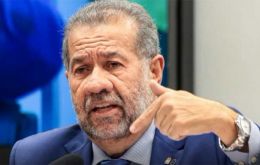
Carlos Lupi resigned Friday from his post as Brazil's Social Security Minister after meeting at the Palácio do Planalto with President Luiz Inácio Lula da Silva, given the ongoing fraud investigation at the National Institute of Social Security (INSS). Although Lupi was not named in the enquiry, he stepped down, emphasizing his commitment to transparency and justice. His second-in-command, Wolney Queiroz, has been chosen as his successor.
-
Monday, April 27th 2015 - 22:40 UTC
Brazil's ruling party of Lula and Dilma 'stole too much' and its time 'is over'
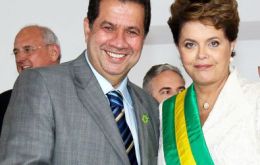
A close ally of Brazilian president Dilma Rousseff and currently part of her government's coalition said “too much stealing” by Lula da Silva's ruling Workers Party (PT) is responsible for the country's political crisis and public opinion disenchantment with politics.
-
Monday, December 5th 2011 - 06:39 UTC
Sixth member of Rousseff’s cabinet resigns amid corruption allegations
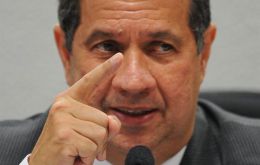
Brazil’s Labor and Employment Minister Carlos Lupi resigned Sunday, the sixth Cabinet member to leave President Dilma Rousseff’s government since June amid corruption allegations.
-
Thursday, December 1st 2011 - 04:14 UTC
Countdown for Brazil’s Labour minister: sixth cabinet loss on corruption allegations
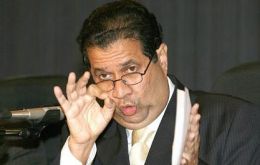
Brazil’s Executive Committee on Public Ethics, on a unanimous decision adopted on Wednesday recommended President Dilma Rousseff the removal of Labour and Employment Minister Carlos Lupi.
-
Sunday, November 27th 2011 - 02:06 UTC
Brazil’s Labour minister closer to the brink on further corruption accusations
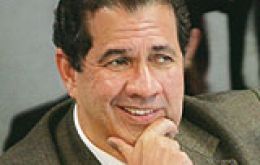
Brazil’s Labour minister Carlos Luppi is again under a barrage of accusations from the Sao Paulo press which could definitively make him the sixth toppled cabinet member in less than a year from the government of President Dilma Rousseff on charges of corruption.
-
Friday, November 18th 2011 - 06:14 UTC
Brazilian leader recommends President Rousseff to “purge” her cabinet

Former Brazilian president Fernando Henrique Cardoso recommended President Dilma Rousseff a purge of her cabinet which faces yet another alleged corruption case: the minister of Labour, the fifth since she took office last January.
-
Wednesday, November 9th 2011 - 07:06 UTC
Brazilian Labour minister embattled in corruption claims says he won’t resign

Brazil's labour minister vowed on Tuesday not to become the sixth minister to quit over corruption allegations this year, saying he has the support of President Dilma Rousseff and his own party.
-
Thursday, September 22nd 2011 - 22:42 UTC
Brazil’s August unemployment stable at 6% in tight labour market

Brazil’s unemployment rate remained unchanged at 6% in August, a record low for the month while average real wages rose 0.5% from the previous months to 1,629.40 Reais (839.16 US dollars) a month, the government statistics agency IBGE report showed.
-
Friday, July 22nd 2011 - 06:20 UTC
Brazil: record low unemployment and more job-creation in second half anticipated

Brazil’s unemployment rate fell to its lowest since January in spite of efforts by policy makers to cool growth and inflation in Latin America’s biggest economy. The jobless rate fell to 6.2% in June, from 6.4% in May and 7% a year earlier, the national statistics agency said in a report distributed in Rio de Janeiro.
-
Thursday, April 21st 2011 - 06:25 UTC
Inflation and unemployment confirm Brazilian economy overheated

March inflation in Brazil accelerated to its fastest rate since November 2008, driven by food, beverages and fuel prices. Consumer prices as measured by the IPCA-15 index rose 6.44% in the year through mid-April, the national statistics agency announced Wednesday in Rio do Janeiro.
